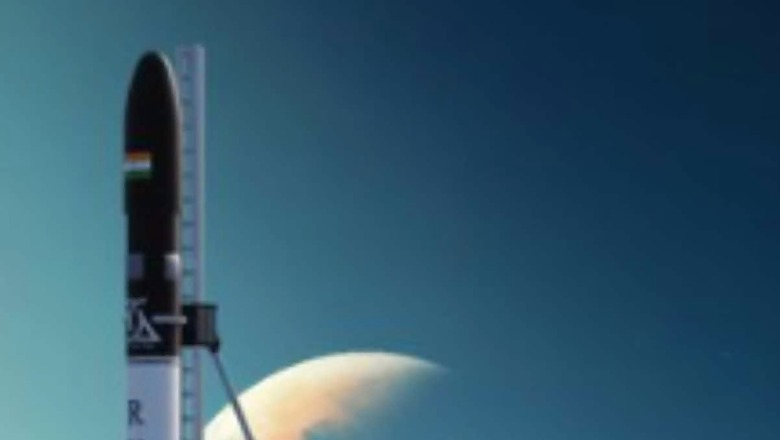
views
India will launch its first reusable hybrid rocket – RHUMI 1 – at 7:00 am on Saturday from Thiruvidandhai in Chennai using a mobile launcher. It will carry “3 Cube Satellites and 50 PICO Satellites to a suborbital trajectory.” RHUMI 1 is developed by Tamil Nadu-based start-up Space Zone India in collaboration with the Martin Group and is designed to focus on “flexibility and reusability”.
Key features of RHUMI 1-
- Adjustable Launch Angle: The rocket’s launch angle can be fine-tuned from 0 to 120 degrees, allowing precise trajectory control.
- Educational Impact: Students from across India and government schools have actively participated in free workshops on rocket and satellite technology.
- CO2-Triggered Parachute System: An innovative, cost-effective, and eco-friendly descent mechanism ensures the safe recovery of rocket components.
- Beyond Space Exploration: The applications extend beyond space exploration to areas such as agriculture, environmental monitoring, and disaster management.
Mission Rhumi-2024: India’s Reusable Hybrid Rocket Takes Flight!Join us on August 24th at 7 AM as Space Zone India, in collaboration with the Martin Group, unveils its groundbreaking achievement—the country’s inaugural reusable hybrid rocket. Designed for flexibility and… pic.twitter.com/GqeT1ivjav
— Martin Group (@MartinGroup_) August 17, 2024
The RHUMI series of rockets, which includes RHUMI-1, RHUMI-2, and RHUMI-3, is engineered to reach altitudes ranging from 1 km to 500 km, a Money Control report said.
“This event marks the third collaboration between the Martin Group and Space Zone India. In 2021, for the ‘Dr APJ Abdul Kalam Space Research Payload Cubes Challenge 2021’ – successfully launched 100 FEMTO Satellites developed by 1200 students. Subsequently, in 2023 for the mission of ‘Dr. APJ Abdul Kalam Students Satellite Launch – 2023’, over 2500 students from government, tribal and public schools across the country became part of a team that designed and constructed a student satellite launch vehicle (rocket) mission that contained a payload of 150 PICO satellite research experiment cubes,” Martin Group said in an X post.




















Comments
0 comment